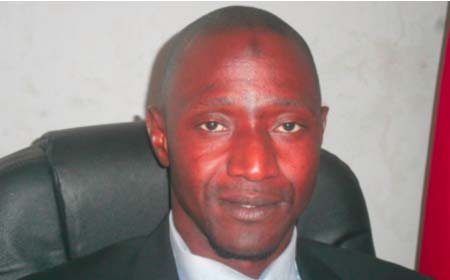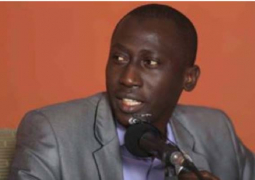
The objective of the project is to promote market-based use and integration of small to medium scale renewable energy systems in the productive area.
The Global Environment Facility (GEF) through its system for transparent allocation of resource had, under the fifth cycle, allocated a grant to The Gambia for the climate change focal area intended for the project that seeks to mitigate the impact of climate change.
Speaking at the launching ceremony, the Minister of Energy, Dr Edward Saja Sanneh, said renewable energy and energy efficiency are technologies of the future that provide the bedrock of sustainable energy supply system of any country.
He said renewable energy technologies are crucial for human livelihoods and maintaining an ecological balance.
“Renewable energy and energy efficiency help increase energy security and access to modern energy services,” Dr Sanneh said.
He said with the renewable energy and energy efficiency are central to the energy policy of The Gambia government and as such it would continue to work with partners like GEF and UNDIO to continue to access climate financing to implement more renewable energy and energy efficiency projects in The Gambia.
He said under GEF-4, a similar project was launched in 2012 that saw the development of many demonstration projects as well as the development and enactment of renewable energy law in The Gambia.
‘’The launching today seeks to consolidate the gains made during the implementation of GEF-4 by undertaking more demonstration projects, developing regulations for the renewable energy sub-sector as well as training more youth and women in renewable energy entrepreneurship,” the energy minister said.
In her remarks, Ndey Sering Bakurin, Executive Director of NEA, said the launching of the project for greening the productive sectors in The Gambia is another commitment of the government to engage in sound environmental management and sustainable development in the country.
“The Gambia as a country had shown real commitment to the protection of the environment as a key part in sustainable development,” she said.
According to her, the launching of the project was in line with Vision 2020 and other policies such as the Programme for Accelerated Growth and Employment (PAGE).
The Gambia government continues to create an enabling environment to address the energy needs of the people, she said.
Therefore, she added, it was important to explore partnership and sustainable avenues to accessing energy-based used and integration of small and medium scale enterprises into renewable energy.
She said the Gambia government in partnership with GEF, UNIDO and ECOWAS Regional Centre for Renewable Energy and Energy Efficiency and the private sector would be implementing the GEF-5.
Mrs Bakurin further noted that energy access, climate change, sound environment and sustainable development had steadily gained visibility and attention at both national and international levels.
They are also central to economic and social development goals, particularly to achieving the Millennium Development Goals (MDGs), she explained.
“Access to clean and affordable energy is one of the main prerequisites for sustainable economic and social development,” the NEA executive director said.
“We strive to promote sustainable patterns of energy production and consumption through innovative and clean technologies, using locally available renewable resources, including bio energy and solar wind power,” she added.



